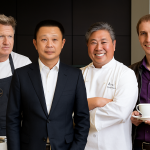In fact, it’s estimated that fewer than 10% of resolutions have been kept by year’s end and 25% have failed by 13th January[1]. This is not to say that goals aren’t achieved because they’re set at the beginning of the year. The point is that it doesn’t matter when you set your goals; even the most even determined individuals can be distracted or demotivated away from achieving their ambitions.
That said, neuroscience shows us that setting goals does have a big impact on achieving success. Olympic silver medallist Mark Richardson delves into the secret to setting goals and meeting them.
During my career as an international athlete, I used a goal-setting framework to help me realise my ambitions. This process was a critical factor in me winning a variety of championship medals including an Olympic Silver medal with the 4x400m relay team in Atlanta. The framework helped me to create a structure and break down huge goals like “win an Olympic medal” into more manageable chunks. I’ve transferred this approach and discipline into my working life and use the same principles as a Client Director at Lane4 today. It’s so relevant and applicable to a business environment, and my hope is that more people will apply the mythology within their own context.
Set your ultimate goal
Setting the right type of goal from the start is very important – you must be clear about where you want to get to.
Make this aspirational and full of personal meaning. Your goal should command your thoughts, give you energy and inspire you on a day-to-day basis. This kind of vision will drive the right type of behaviours to establish a long-lasting commitment.
When I was preparing for the Atlanta Olympic games in 1996, I drew on my personal vision to set a legacy for my family and parents’ Caribbean home island of Anguilla. I was also greatly inspired by Carl Lewis in the 1984 Los Angeles Olympics. This crystallised in my mind how much I wanted to get onto the podium and win an Olympic medal for myself.
In a business context, it’s important to consider what vision will engage both you and your colleagues with where you want to get to. Think about how you can inspire yourself and others with a meaningful narrative around this particular vision, which can then be drawn upon as a motivator.
"My main outcome goal was to be standing on the podium after winning a medal for myself at the Atlanta games. Once this was clear, my coach and I analysed the performance that would be necessary to earn my place on the British team, therefore giving me the best chance of winning a medal."
Decide on your endpoint and the data you’ll need
Once you are crystal clear about where you want to get to, it‘s time to think about the outcomes that will give you the best possible chance of realising that vision. I would advise selecting between one and three outcomes to set yourself up for success.
My main outcome goal was to be standing on the podium after winning a medal for myself at the Atlanta games. Once this was clear, my coach and I analysed the performance that would be necessary to earn my place on the British team, therefore giving me the best chance of winning a medal.
We concluded that my performance objective was to be able to run 400m in a time of 44.6 seconds; my speed measure was 100m in 10.3 seconds, and my strength measure was to lift a ‘clean’ at 127.5kg and ‘bench’ at 127.5kg.
Going back to business, one goal may be to add credibility to your offer, which may require external recognition. Therefore, an outcome goal could be to win an industry award.
Identify your specific, day-to-day actions
Finally, it’s important to break down your performance into its constituent parts.
For me, that meant training in a stringent way with rigorous drills to embed technical excellence and hundreds of repetitions. In addition to the physical training, I had to be mindful of my diet and getting enough sleep. These are all actions that could all be measured and tracked.
These process goals are the mini, day-by-day interventions you should put into place in a relevant timeframe. This is how you execute great performance.
For the industry award example, the day-to-day actions could include regularly gathering data on the project’s success, identifying relevant publications or awarding bodies and giving someone the responsibility to create a compelling award entry.
So, what is your big goal right now? How well-formed is your vision? Having a core sense of purpose is key to setting those challenging goals and sticking to them. By spending dedicated time, focus and energy mapping this out and regularly reviewing your progress, I have no doubt you’ll be on track to achieve your biggest goals yet.
Mark is an Olympic silver medal winner in the 1996 4 x 400m relay, and one of Lane4’s Client Directors. He is one of the few athletes ever to beat US Olympian Michael Johnson over 400m.
[1] https://www.theguardian.com/commentisfree/2019/jan/01/heres-how-to-crack-your-new-years-resolutions











